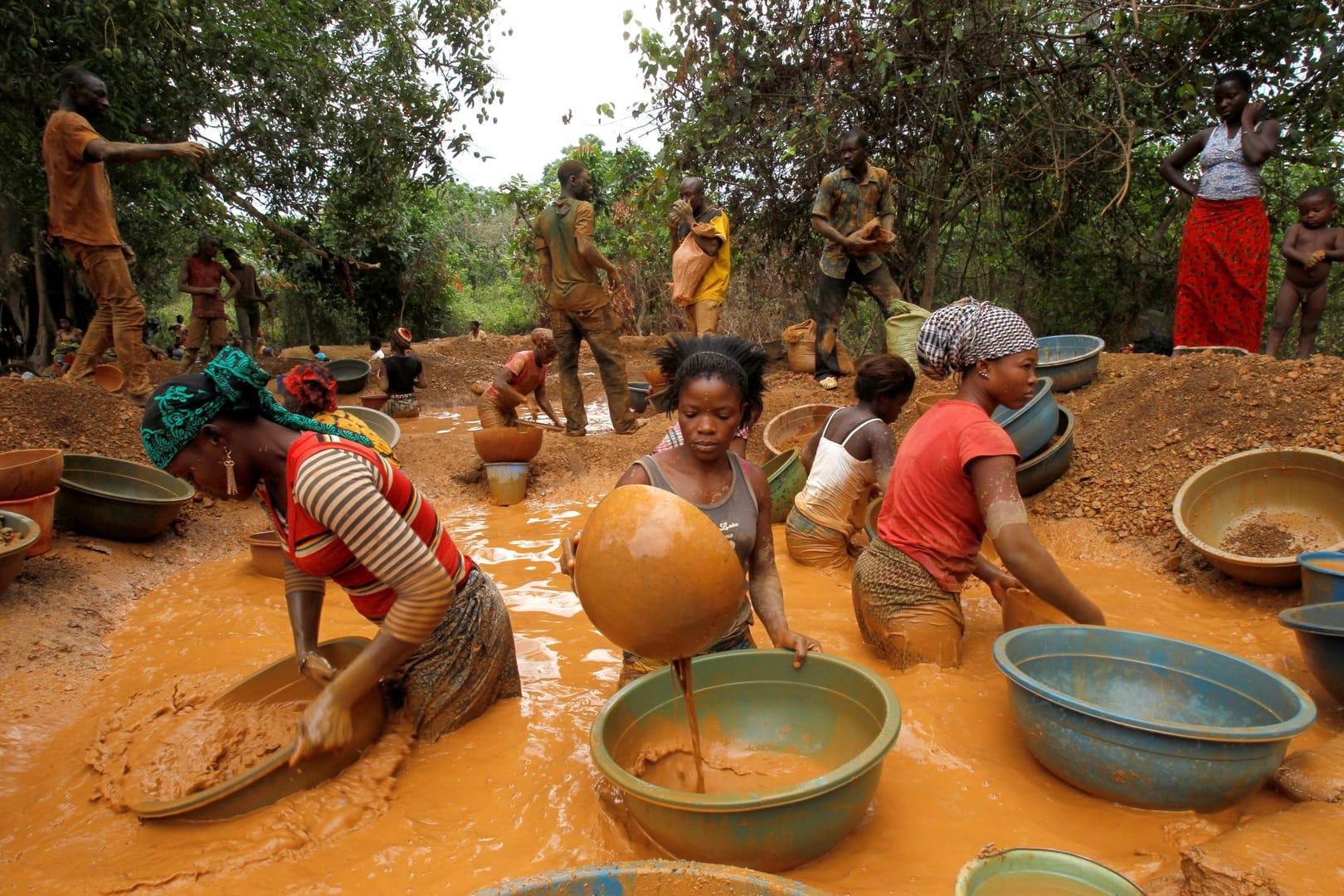YAOUNDÈ, Cameroon – As the price of gold continues to soar, thousands of people in Ivory Coast are risking their lives in illegal mining operations in the West African country.
The number of illegal miners has risen from an estimated 500,000 in 2014 to 1.5 million today. Reports indicate that the gold mines have also become death traps for the miners, and have led to an increase of human trafficking of women for sexual exploitation. In 2014, around 150 gold mines were shut down after five illegal miners died following a mine collapse.
On November 15, a day dedicated to peace, the country’s Catholic bishops called on the government to address the problem.
“The anarchic rush of those thirsty for the yellow metal is not without consequences for the localities in which they settle,” the prelates said in a statement signed and delivered by Bishop Bruno Essoh Yedoh of Bondoukou, the President of the Episcopal Commission for Social Pastoral and Integral Development Service.
“The practice of this illegal activity causes harmful changes to the environment, namely the excavation of agricultural land, pollution and destruction of riverbeds due to the use of mercury, deforestation and destruction of the vegetation cover. It leads to the disastrous degradation of the general living environment, which causes a real public health problem since the effects of mercury use are harmful to the populations that are constantly exposed to it,” the statement said.
“This sad observation leads us to turn to the government to invite it to intensify the fight against this activity,” the bishops said.
But they didn’t limit themselves to the problem of gold mining, the bishops also addressed the issue of land grabbing, when large areas of land are acquired by individuals or corporations.
“The massive purchase of agricultural land in our country by certain foreign powers should be a matter of concern to all of us and to the government at the highest level,” the bishops said.
“This practice, which favors cash crops, is denounced as a new form of agro-colonialism by non-governmental organizations (NGOs) and many peasant organizations. Understood as the seizure of power through land and natural resources by foreign capital, land grabbing deprives peasants of their means of production, i.e. their capital. And it is family farming that is suffocated,” the statement continued.
They called on the country’s leadership to “take the side of the peasants by saying that they are also creators of wealth and, consequently, must benefit from the protection of public authorities.”
The bishops also welcomed the efforts towards peace and reconciliation in Ivory Coast, describing peace as “a gift from God to be welcomed and promoted.”
“For our country, let no one refuse this offer. Let no one refuse this precious gift, this gift that is indispensable for its construction and development, for the fulfillment and happiness of each and every one.”
The country had been the theater of war and conflict, with its first civil war coming in September 2002 when insurgents grouped under the banner of the New Forces of Ivory Coast rose up against the government of Laurent Gbagbo. It ended with a peace deal on March 4, 2007.
Then came the post elections violence of 2011 where current president Alassane Ouattara claimed victory, although Gbagbo was officially declared president. The ensuing fighting left at least 3000 people dead, and Gbagbo was arrested at his residence on April 11, 2011.
He faced trial at the International Criminal Court for crimes against humanity, but was acquitted on January 15, 2019. Ouattara has since also granted his predecessor state pardon, and eventually invited him, along with another former President, Henri Konan Bédié, to the Presidential Palace.
“This reunion, the first since the deadly political crisis that followed the 2020 presidential election, was worth its weight in gold because of the weight of these political figures,” the bishops said.
They also welcomed the president’s efforts at engaging in a national dialogue, the 5th phase of which started on December 16, 2021, and ended on January 4, 2022. It brought together representatives of the government, political parties and groupings and civil society organizations.
“We hereby express, together with our brothers in the Episcopate, the wish that this dialogue will continue over time, even beyond the electoral periods. Indeed, dialogue, friendship and solidarity between citizens and peoples are the best responses to violence, hatred, contempt and intolerance,” the prelates said.
“Looking at the current political context, we can only rejoice at the wind of relaxation that these actions bring to peace,” the message concluded.
Ivory Coast is a religiously diverse country, with around 42 percent of the population being Muslim, and 40 percent Christian, mainly Catholic.














